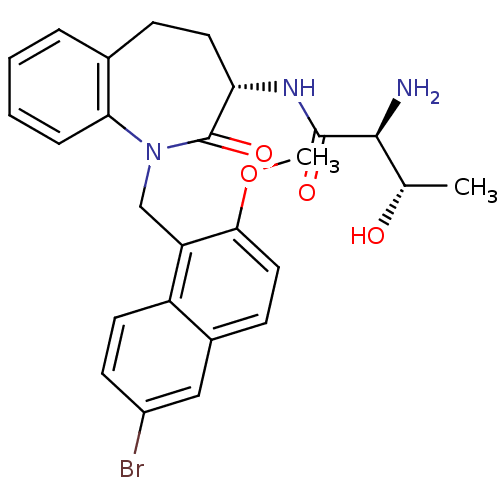BDBM50441344 CHEMBL2431763::US9611224, Example 10
SMILES COc1ccc2cc(Br)ccc2c1CN1c2ccccc2CC[C@H](NC(=O)[C@@H](N)[C@H](C)O)C1=O
InChI Key InChIKey=YRFALZLFBOWGKJ-WIRXAFICSA-N
Data 4 IC50
Activity Spreadsheet -- Enzyme Inhibition Constant Data from BindingDB
 Found 4 hits for monomerid = 50441344
Found 4 hits for monomerid = 50441344
Affinity DataIC50: >5.40E+4nMAssay Description:Inhibition of His-tagged XIAP BIR3 domain (241 to 356) (unknown origin) after 1 hr by TR-FRET assayMore data for this Ligand-Target Pair
Affinity DataIC50: >5.48E+4nMAssay Description:The peptide AVPIAQKSEK-(ε-biotin)-OH (SEQ ID NO: 1) 1:2 TFA (Peptide A) was identified as a substrate for the TR-FRET assay by screening the 6× ...More data for this Ligand-Target Pair
Affinity DataIC50: 104nMAssay Description:The peptide AVPIAQKSEK-(ε-biotin)-OH (SEQ ID NO: 1) 1:2 TFA (Peptide A) was identified as a substrate for the TR-FRET assay by screening the 6× ...More data for this Ligand-Target Pair
Affinity DataIC50: 104nMAssay Description:Inhibition of His-tagged XIAP BIR2 domain (124 to 240) (unknown origin) after 1 hr by TR-FRET assayMore data for this Ligand-Target Pair
